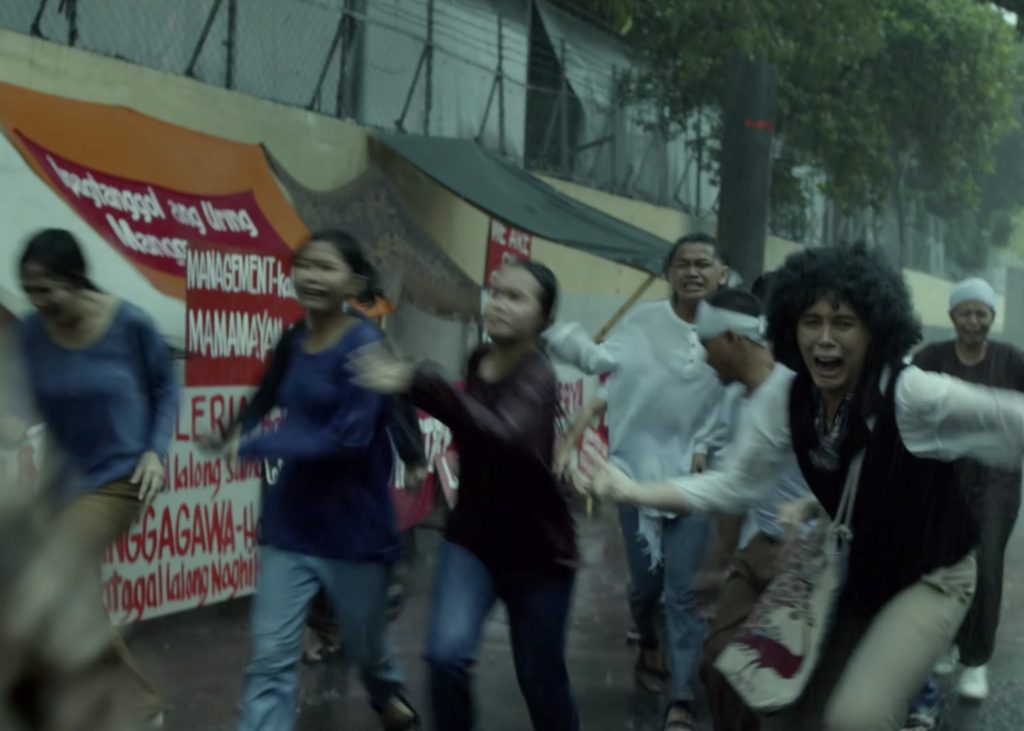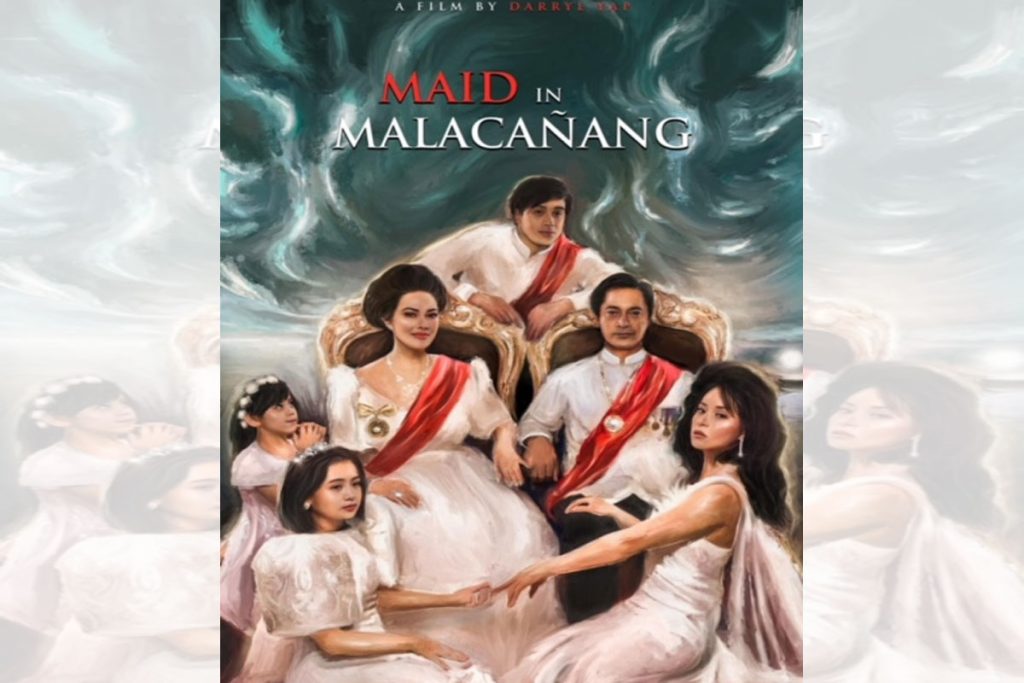The Katipunan area, often referred to as “Katips,” is recognized as Quezon City’s university belt and has been associated with student activism.
Several academic institutions are located in the area, such as the University of the Philippines – Diliman campus, the Ateneo de Manila University, and the Miriam College.
Katipunan Avenue is named after the revolutionary society founded by Andres Bonifacio and other patriots who eventually launched an uprising against Spanish rule in the Philippines.
The green “Katips” jeepneys used to ply the route from Aurora Boulevard to the UP Campus where passengers wait in front of Vinzon’s Hall.
The face-off between Ateneo and UP at the University Athletic Association of the Philippines basketball competition is often dubbed as the “Battle of Katipunan.”
“Katips” student activism has always been a potent force in social change.
“Katips: The Movie” is a musical drama film produced by Philstagers Films about the struggles of ordinary people who became victims of human rights abuses during the years of martial law in the 1970s.
The film is based on the musical “Katips: Mga Bagong Katipunero,” originally performed onstage in 2016 and won Best Musical Performance in the Aliw Awards that year
The film recently bagged seven major awards during the 70th FAMAS Awards Night, including Best Picture, Vince Tanada as Best Actor and Best Director, Johnrey Rivas as Best Supporting Actor, Best Original Song (“Sa Gitna ng Gulo”), Best Musical Score, and Best Cinematography.
It earlier had seventeen nominations in various categories.

Tanada said the movie is “a tale of the young, in their fight for their ideals, [and] how big can one get against a force too much bigger than themselves.”
He said that “its sole objective is to convey what really happened in Philippine history” because “nobody can ever invalidate the experience of people.”
Back in the 1970s, many members of the “Katips” community participated in protest actions against the reign of dictator Ferdinand Marcos Sr.
Demonstrations, protests, and marches against the Marcos administration were mostly organized by students and took place from January 26 to March 17, 1970, now known as the “First Quarter Storm.”
Violent dispersals ensued during the FQS protests and it became the watershed of the radicalization of Filipino students in the 1970s.
I was barely two months old when the nine-day uprising called “Diliman Commune” — from February 1 to 9, 1971 — became an evidence of UP’s role as the “bastion of activism.”
It was the first ever display of mass resistance from the UP Diliman community, together with transport workers, to protest the three-centavo increase in oil prices.
Student politics trained “Katips” denizens for service to the people.
The campus molded us to fight for the causes we believe in, trained us for the skills we need to communicate ideas, and rally others to effect changes in society.
The university teaches what textbooks cannot capture, the state education curriculum avoids, or the military censors erase or prohibit. In the first place, these are institutions with critical eyes on social and historical issues.

“Katips” will be in cinemas at the same time with “Maid in Malacanang” that compared history to “chismis (rumor).”
Amid reports that free tickets are being distributed to schools by some business groups, social activist Teresita Ang See said the promotion of the “Maid in Malacanang” movie in schools “is an insult to our schools and students.”
“It displays total disregard for integrity, and disrespect for the truth and historical facts,” she said, adding that “promoting a film that has been judged as a distortion of history by distributing free passes to students is truly appalling.”
“It is tantamount to asking these educational institutions to promote outright lies, falsehoods, and historical distortion,” said See.
Life under the dictatorship was deadly, especially for those who stood against Marcos.
In the case of Mijares vs Ranada (G.R. No. 139325 April 12, 2005), the Supreme Court said: “Our martial law experience bore strange unwanted fruits… the colossal damage wrought under the oppressive conditions of the period. The cries of justice for the tortured, the murdered, and the Desaparecidos arouse outrage and sympathy in the hearts of the fair-minded, yet the dispensation of the appropriate relief due them cannot be extended through the same caprice or whim that characterized the ill-wind of martial rule.”
In Dizon vs Eduardo (G.R. No. L-59118 March 3, 1988), the Court noted that “the martial law imposed in September 1972 by Marcos destroyed in one fell swoop the Philippines’ 75 years of stable democratic traditions and established reputation as the showcase of democracy in Asia.”
Atty. Dennis R. Gorecho heads the seafarers’ division of the Sapalo Velez Bundang Bulilan law offices. For comments, e-mail [email protected], or call 0917-5025808 or 0908-8665786









